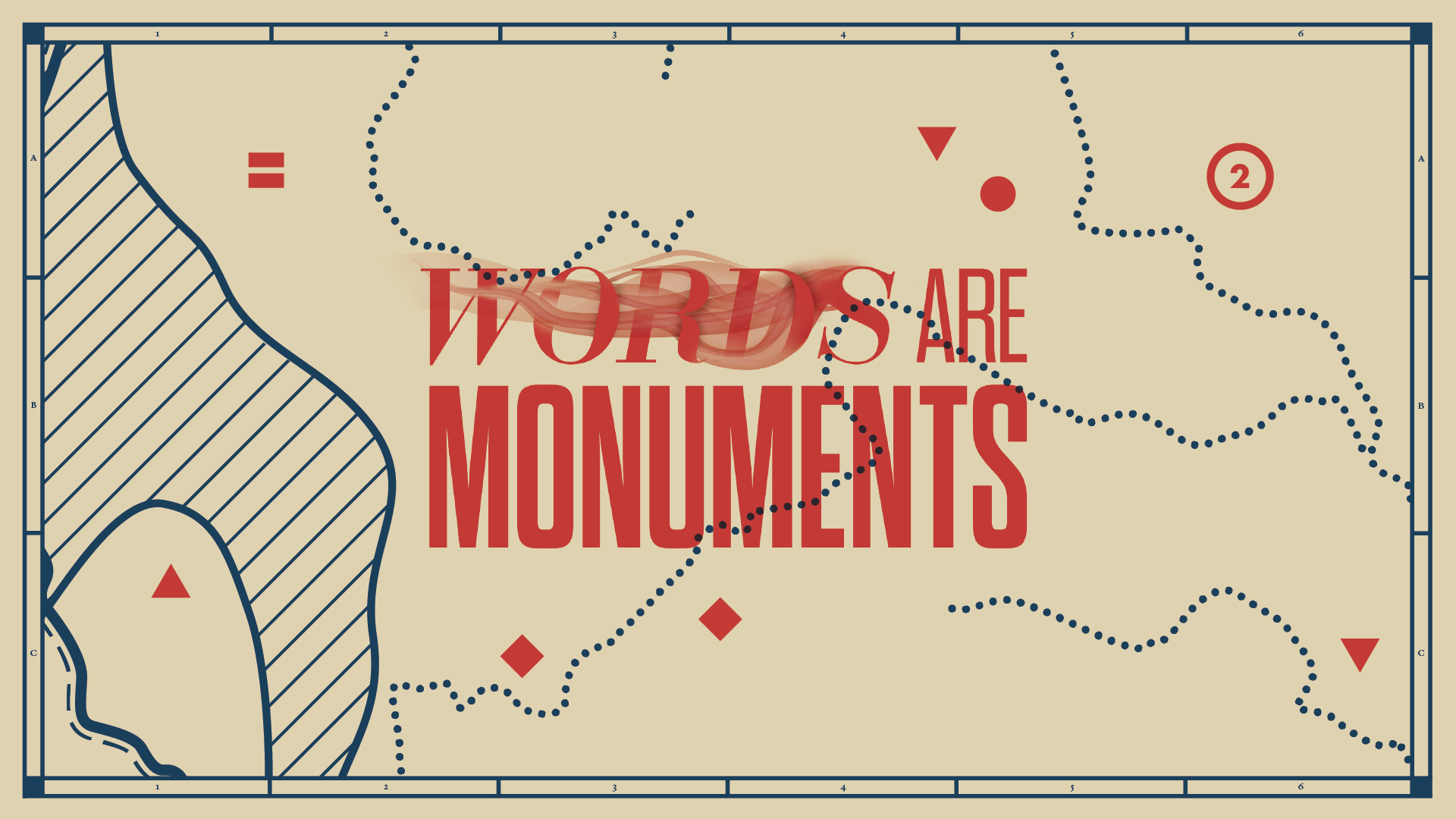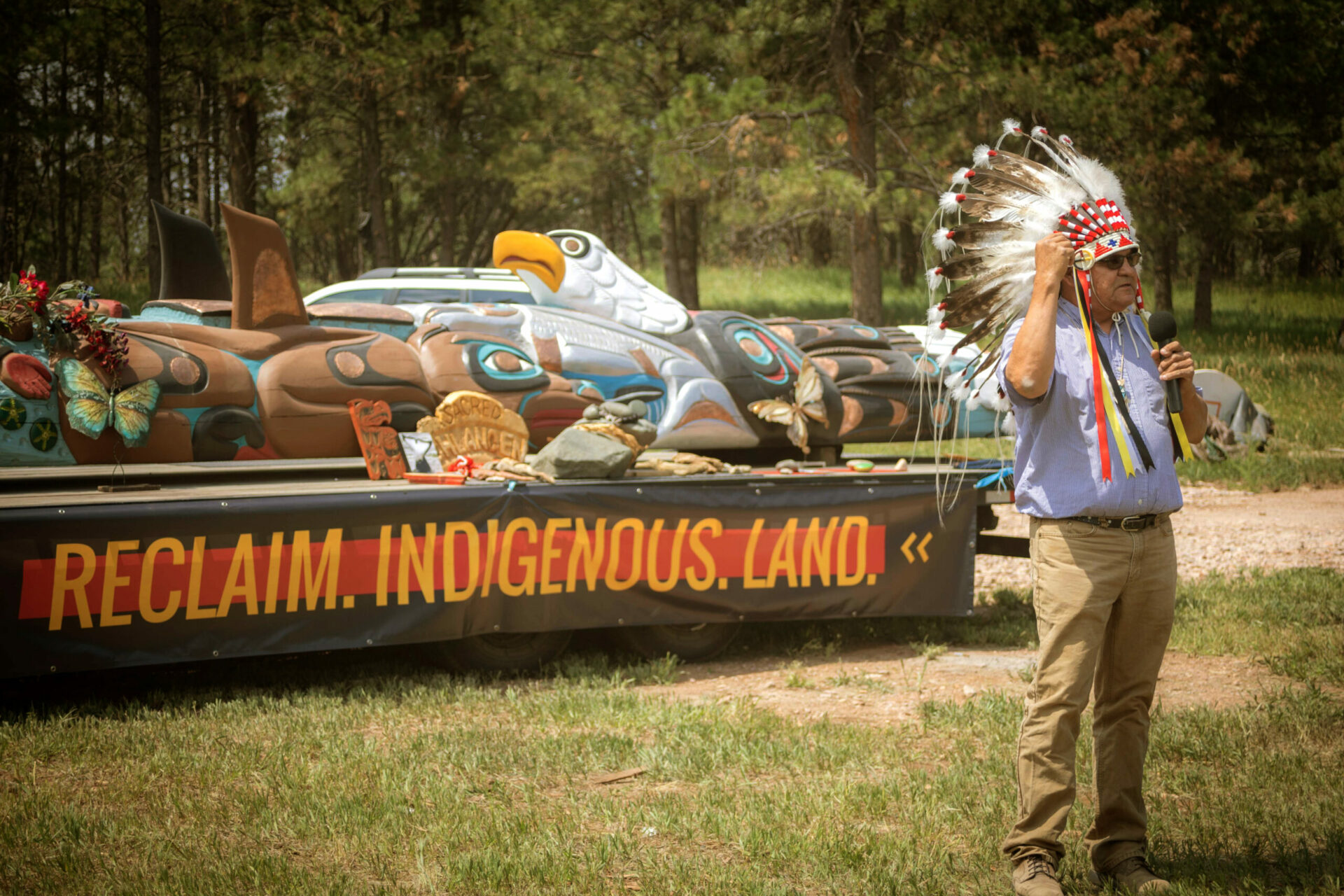 |
|
|

Dear friend,
A national reckoning with American history and racial injustice has been playing out on the terrain of monuments, museums, school curricula, and increasingly—maps. In a new report titled “Words Are Monuments,” conservation scientists analyze 2,200 place-names in 16 National Parks, asking how place-names perpetuate settler-colonial myths, including white supremacy. While the federal government plans to rename 660 place-names with the derogatory term “sq**w,” the study reveals the system-scale problem of place-names on public lands.
Place-names encode a way of seeing, understanding, and relating to the land. They inscribe our social values on official maps for the future generations. Like the movement to topple Confederate and colonial statues, renaming campaigns demonstrate how oppressive word-monuments–as symbols of extraction, erasure, and enclosure–can be replaced and reclaimed as life-affirming sites for cultural resurgence and decolonial power-building. Today, we are launching WordsAreMonuments--a new website, event series, and campaign--to support and give context to the global movement for reconciliation in place-names. On the site you’ll find an interactive map with stories from problematic place-names cited in the study; a step-by-step guide from the National Association of Tribal Historic Preservation Officers on how to officially change place-names; as well as articles, video interviews, and ways to take action to support renaming campaigns. Over the next few months, we’ll host a free series of online events with artists, activists, scholars and community organizers who will explore : - Why place names matter and how the movement to 'undo the colonial map' relates to other movements that reckon with American history—to topple Confederate and colonial monuments, decolonize museums, and overhaul school curricula;
- The relationship between language and ideology, and the power place-names have to influence how we interact with the land and each other;
- How campaigns to re-Indigenize place-names on federal lands are not just about making public lands more inclusive, they are stepping stones on the path to Indigenous co-governance and land rematriation;
- The global reckoning with colonial and imperialist history, including successful and ongoing efforts to replace colonial place-names in New Zealand, India, Palestine, South Africa, and beyond.
The series kicks off on Thursday, April 14th with a virtual event, National Parks, Place Names, and #LandBack. More info below, we hope you can join us. For the future,
The Natural History Museum.
|
|
|  |
|
| 
National Parks, Place-Names, and #LandBack.Thursday, April 14
5pm PT / 8pm ET
RSVP National parks have been called “America’s Best Idea”, yet more and more, people are calling attention to the violent histories of dispossession, enclosure, and erasure from which the National Parks system emerged. The conservationist ideal espoused by the founders of the country’s first National Parks was not only premised on the removal of Indigenous people from their homelands, but also on the demonization and erasure of Indigenous ways of stewarding the land. As part of a broader reckoning with the logics and limitations of western conservation, communities across the country are campaigning to change the names attributed to mountains, rivers, waterfalls, and other landmarks on federal lands, many of which commemorate colonial statesmen and prominent eugenicists, perpetuate racial slurs, and erase Indigenous histories. On the occasion of the 150th anniversary of Yellowstone, the country’s first national park, this panel will show how these campaigns are not just efforts to make federal lands more inclusive, but are stepping stones on the path to Indigenous co-governance and #landback.
SPEAKERS Dina Gilio-Whitaker (Colville in Confederated Tribes), author, journalist, scholar. Krystal Two Bulls (Lakota/Cheyenne), Director of the LANDBACK Campaign at NDN Collective. Bonnie McGill, PhD, ecologist, lead author of the "Words Are Monuments" report on National Park place-names. |  |
| 
Racist and Offensive Place Names : The Movement to Rename Mountains, Rivers, and ValleysTuesday, April 19 3 pm PT/ 6 pm ET
RSVP
Co-sponsored by the National Association of Tribal Historic Preservation Officers, The Wilderness Society, and The Natural History Museum. Thousands of mountains, valleys and rivers located on public lands have names that are derogatory, misogynistic, racist or just plain offensive. These names perpetuate a history of colonization and oppression in the United States and have resulted in public lands that are not welcoming and inclusive places. It’s time to change that. Join us for a conversation that delves into the scope of the problem and examines patterns of offensive place names in national parks, hear from grassroots advocates working to change offensive places nearest them, and learn about what you can do to help.
SPEAKERS Maria Givens (Coeur d’Alene), co-founder of Tahoma Peaks Solutions. Valerie Grussing, Executive Director of the National Association of Tribal Historic Preservation Officers. Bonnie McGill, Ph.D., lead author of Words are Monuments : Patterns in US national park place names perpetuate settler colonial mythologies including white supremacy. Fred Mosqueda (Arapaho), grassroots advocate working to change the name of Mount Evans in Colorado to Mount Blue Sky. Paul Spitler, Sr. Legislative Policy Manager, The Wilderness Society, moderator. |
|
|  |
|
| Thank you !The Natural History Museum leverages the power of history, museums, monuments, and movements to change narratives, build alliances, educate the public and drive civic engagement in support of community-led movements for climate and environmental justice. Our programs are made possible thanks to support from 4Culture, ATALM, Chorus Foundation, Hewlett Foundation, Invoking the Pause, Myer Memorial Trust, National Geographic Foundation, NEH, Resource Legacy Fund, and countless individuals. Please consider making a tax-deductible contribution today! Your support goes a long way.
|  |
|
|
|
|
Aucun commentaire:
Enregistrer un commentaire